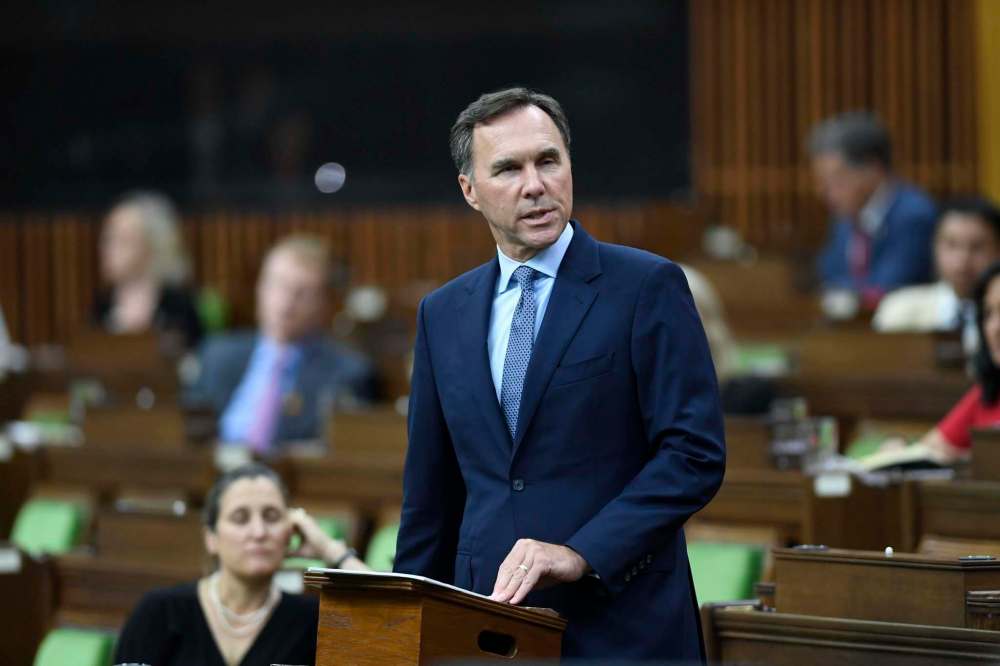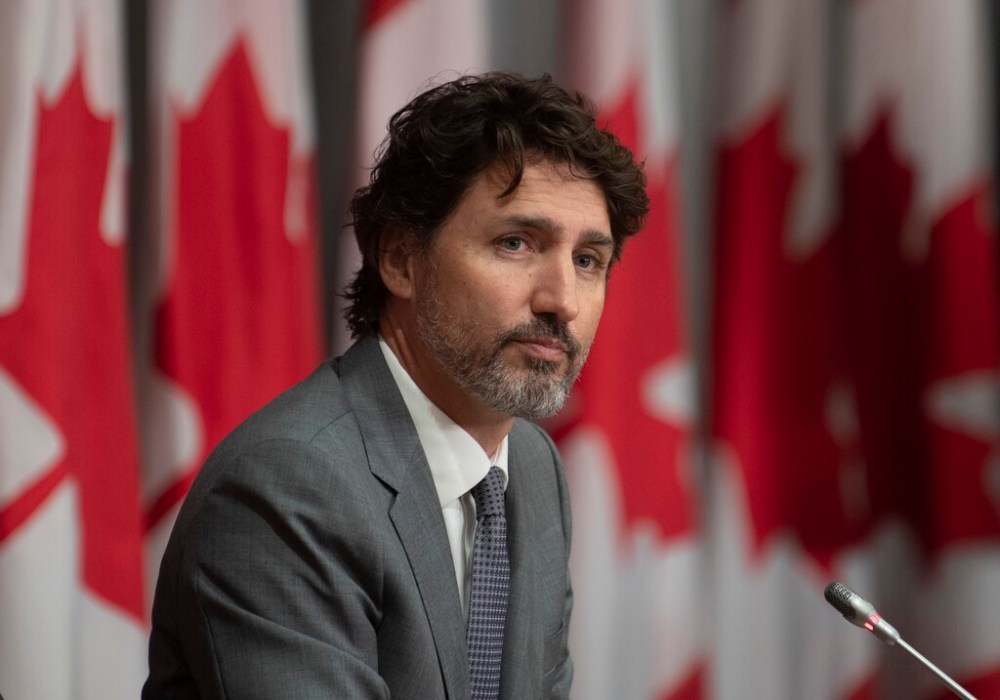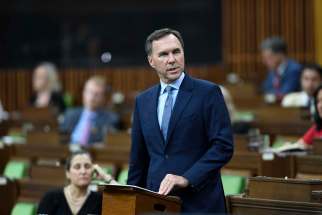Massive deficit a necessary response
Read this article for free:
or
Already have an account? Log in here »
To continue reading, please subscribe:
Monthly Digital Subscription
$0 for the first 4 weeks*
- Enjoy unlimited reading on winnipegfreepress.com
- Read the E-Edition, our digital replica newspaper
- Access News Break, our award-winning app
- Play interactive puzzles
*No charge for 4 weeks then price increases to the regular rate of $19.00 plus GST every four weeks. Offer available to new and qualified returning subscribers only. Cancel any time.
Monthly Digital Subscription
$4.75/week*
- Enjoy unlimited reading on winnipegfreepress.com
- Read the E-Edition, our digital replica newspaper
- Access News Break, our award-winning app
- Play interactive puzzles
*Billed as $19 plus GST every four weeks. Cancel any time.
To continue reading, please subscribe:
Add Free Press access to your Brandon Sun subscription for only an additional
$1 for the first 4 weeks*
*Your next subscription payment will increase by $1.00 and you will be charged $16.99 plus GST for four weeks. After four weeks, your payment will increase to $23.99 plus GST every four weeks.
Read unlimited articles for free today:
or
Already have an account? Log in here »
Hey there, time traveller!
This article was published 08/07/2020 (1984 days ago), so information in it may no longer be current.
The numbers are, in a word, alarming. The federal government’s fiscal update, delivered Wednesday by Finance Minister Bill Morneau, confirms the deficit is now forecast at $343 billion. That is more than 10 times larger than it was one year ago, and it will help push the cumulative federal debt beyond $1 trillion for the first time.
It would be easy for Canadians to wring their collective hands at the current financial predicament. But the available evidence suggests things could be a lot worse if not for the unprecedented public investment in economic supports to help Canadians through the COVID-19 pandemic.
It’s also important to keep in mind that as bad as the finances look, they have been worse.

The debt-to-GDP ratio is now expected to be slightly less than 50 per cent. That is only slightly higher than the levels experienced in the early 2000s, and is still much less than 1995-96, when Ottawa faced a debt-to-GDP ratio of 66 per cent.
Even against this bleak financial backdrop, it’s important to realize that in terms of both the economy and public health, Canada has fared much better than most other countries during the COVID-19 pandemic. The bigger question is what lies in our future. Canada will see threats from a number of different sources, including a new surge in COVID-19 infections, lingering economic paralysis and, last but not least, partisan complications.
In a minority parliament, the competing partisan interests of the governing Liberals and opposition parties make the margin for error very slim. If either the Conservatives or NDP decides to bring the government down, Canadians would find themselves in the unenviable position of having to endure an election in the midst of the pandemic upheaval.
This does not amount to an endorsement of the Liberal government. This is not, however, the time for an election. The Liberals are obliged to govern in a manner that respects the interests of the other parties in the minority Parliament; the non-governing parties, for their part, must focus on the best interests of all Canadians rather than catering to the ideological demands of their most vocal supporters.
Even if Canada’s minority Parliament can keep its partisan wrangling to a minimum, there are other threats on the horizon.
The level of spending Prime Minister Justin Trudeau has unleashed on Canada’s battered economy is clearly not sustainable. Stimulus only works if it creates a baseline of fiscal activity that helps bridge the national economy through difficult times. The longer the economy is crippled, the more likely it will be that the deficit and mounting debt will lead to permanent damage to government finances.

There are also interest rates to consider. The current low cost of borrowing makes the deficits generated by countries such as Canada much more manageable than in past generations. If that were somehow to change, so too would the entire fiscal equation.
The Canadian government, like governments in other countries, should look to make foundational improvements to social safety nets. For example, there was mounting support for basic income programs before the COVID-19 crisis; after observing the magnitude of economic devastation that accompanies a pandemic, surely there are stronger arguments to be made for establishing more effective social programs.
Without question, the deficit and debt being generated by Ottawa are alarming and worrisome. But the numbers presented Wednesday by Mr. Morneau are, in the current context, no cause for panic.










